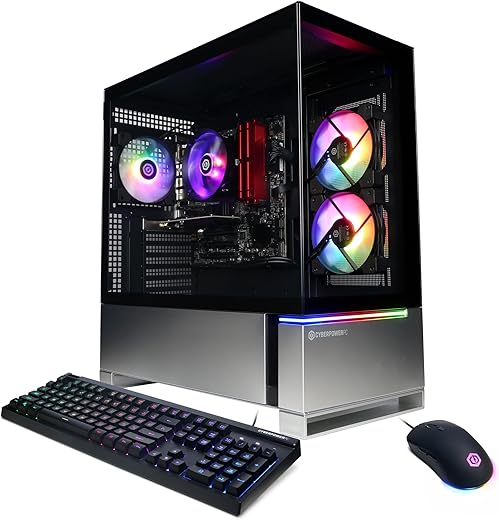
Did you know that over 60% of gamers play on systems that are underpowered for the latest titles? It’s a staggering statistic that highlights a common struggle in the gaming community: the desire for high-performance gaming without the hefty price tag. I understand the frustration of wanting to dive into your favorite games without emptying your wallet. In this post, I’ll guide you through the best budget PC options that deliver solid performance while keeping costs manageable. Together, we’ll explore what to look for in a gaming rig that won’t compromise your experience or your bank account.



Understanding Your Budget and Needs
Before you embark on the journey of selecting a gaming PC, it’s crucial to understand your specific gaming needs and budget. This assessment will guide you in making informed decisions that align with your gaming preferences and financial capabilities. This section will delve into various factors that will influence your purchase, such as gaming genres, performance expectations, and the necessary balance between cost and hardware specifications.


Identify Your Gaming Genres
The first step in determining your budget is to consider the types of games you enjoy playing. Different genres have varying hardware requirements. Here’s a breakdown of some popular gaming genres and their typical requirements:
- Casual Games (e.g., Stardew Valley, Among Us)
- Minimum Specs: Intel i3 / AMD Ryzen 3, 8GB RAM, Integrated Graphics
- Recommended Specs: Intel i5 / AMD Ryzen 5, 16GB RAM, GTX 1650 or equivalent
- Competitive FPS (e.g., Counter-Strike: Global Offensive, Valorant)
- Minimum Specs: Intel i5 / AMD Ryzen 5, 8GB RAM, GTX 1050 or equivalent
- Recommended Specs: Intel i7 / AMD Ryzen 7, 16GB RAM, GTX 1660 Ti or RTX 2060
- Open World RPGs (e.g., The Witcher 3, Cyberpunk 2077)
- Minimum Specs: Intel i5 / AMD Ryzen 5, 8GB RAM, GTX 1060 or equivalent
- Recommended Specs: Intel i7 / AMD Ryzen 7, 16GB RAM, RTX 2070 or higher
- Simulation Games (e.g., Microsoft Flight Simulator, Sims 4)
- Minimum Specs: Intel i5 / AMD Ryzen 5, 8GB RAM, GTX 1060 or equivalent
- Recommended Specs: Intel i7 / AMD Ryzen 7, 16GB RAM, RTX 2070 Super or higher
By identifying the genres you favor, you can better understand the hardware you need to support your gaming experience.
Set Your Performance Expectations
Once you know your gaming genres, set realistic performance expectations based on your budget. Higher performance often means spending more on components such as the CPU, GPU, and RAM. Here’s how different performance levels typically correlate with cost:
| Performance Level | Estimated Budget Range | Example Components |
|---|---|---|
| Entry-Level | $500 – $800 | AMD Ryzen 5 5600G, GTX 1650 |
| Mid-Range | $800 – $1500 | Intel Core i5-12600K, RTX 3060 |
| High-End | $1500 – $2500 | Intel Core i9-12900K, RTX 3080 Ti |
| Ultra High-End | $2500+ | AMD Ryzen 9 7950X, RTX 4090 |
Setting performance expectations allows you to align your gaming experience with your budget. If you’re looking to play the latest AAA titles at high settings, you will need to invest in higher-end components.
Balancing Cost with Hardware Specifications
When it comes to building or purchasing a gaming PC, achieving a balance between cost and hardware specifications is essential. Here are some components to consider and how they can impact your budget:
CPU
- AMD Ryzen 5 5600X: A solid choice for budget gamers, priced around $200. It provides excellent performance for most gaming needs.
- Intel Core i7-12700K: A higher-end option, priced around $350, ideal for gamers seeking top-tier performance.
GPU
- NVIDIA GTX 1660 Super: A budget-friendly GPU that costs about $250 and offers good performance for 1080p gaming.
- NVIDIA RTX 3060 Ti: Priced around $400, it’s great for 1440p gaming and offers ray tracing capabilities.
RAM
- 16GB DDR4 3200MHz: Generally considered the sweet spot for gaming, costing around $60.
- 32GB DDR4 3600MHz: Useful for multitasking and future-proofing, priced around $120.
Storage
- 500GB SSD: A solid-state drive for fast load times, priced around $50.
- 1TB NVMe SSD: Offers even faster performance, costing about $100.
Example Build
Here is an example of a balanced gaming build for different budgets:
| Component | Budget Build | Mid-Range Build | High-End Build |
|---|---|---|---|
| CPU | AMD Ryzen 5 5600X ($200) | Intel Core i5-12600K ($300) | Intel Core i9-12900K ($600) |
| GPU | GTX 1660 Super ($250) | RTX 3060 ($350) | RTX 3080 Ti ($1,200) |
| RAM | 16GB DDR4 ($60) | 16GB DDR4 ($60) | 32GB DDR4 ($120) |
| Storage | 500GB SSD ($50) | 1TB NVMe SSD ($100) | 1TB NVMe SSD ($100) |
| Total | ~$560 | ~$910 | ~$2,110 |
Top Budget PC Components for Gaming
Building a gaming PC on a budget can be a daunting task, but it’s entirely feasible with the right components. In this section, we’ll break down the essential parts of a budget gaming PC, focusing on the CPU, GPU, RAM, and storage. Each component will be evaluated in terms of performance, price, and compatibility to help you make informed choices for your gaming setup.



Central Processing Unit (CPU)
The CPU is the brain of your PC, and choosing the right one is crucial for overall performance. For budget gaming, you want a CPU that offers a good balance of performance and price.
Recommended Models:
- AMD Ryzen 5 5600G
- Performance: 6 cores, 12 threads, integrated Radeon graphics.
- Price Point: Around $200.
- Compatibility: AM4 socket; works well with B550 and A520 motherboards.
- Intel Core i5-11400F
- Performance: 6 cores, 12 threads, great single-threaded performance for gaming.
- Price Point: Approximately $180.
- Compatibility: LGA 1200 socket; compatible with B560 and H510 motherboards.
Key Points:
- Look for CPUs with at least 6 cores for good multitasking and gaming performance.
- Integrated graphics can save costs if you’re not ready to purchase a discrete GPU yet.
Graphics Processing Unit (GPU)
The GPU is arguably the most critical component for gaming. While prices can vary significantly, there are budget-friendly options that deliver solid performance.
Recommended Models:
- NVIDIA GeForce GTX 1660 Super
- Performance: Excellent 1080p gaming performance, capable of handling most modern titles.
- Price Point: Around $250–$300 (check for sales).
- Compatibility: Standard PCI Express slot; works with most mid-range PSUs.
- AMD Radeon RX 6500 XT
- Performance: Good for 1080p gaming, optimized for newer titles.
- Price Point: Approximately $200.
- Compatibility: Requires a PCIe 4.0 slot; be mindful of PSU requirements.
Key Points:
- Target GPUs that can deliver consistent framerates at 1080p resolution.
- Keep an eye on availability and pricing, as these can fluctuate due to demand.
Random Access Memory (RAM)
RAM is vital for smooth gameplay and multitasking. For budget builds, it’s essential to choose the right capacity and speed.
Recommended Configuration:
- Corsair Vengeance LPX 16GB (2 x 8GB) DDR4-3200
- Performance: Dual-channel setup enhances performance; 3200 MHz is a sweet spot for gaming.
- Price Point: About $50.
- Compatibility: Compatible with most motherboards that support DDR4.
Key Points:
- Aim for at least 16GB of RAM for modern gaming.
- Dual-channel configurations (2 sticks of RAM) provide better performance than a single stick.
Storage
Storage affects game load times and overall system performance. There are two main types to consider for budget gaming setups: HDDs and SSDs.
Recommended Models:
- Crucial MX500 500GB SSD
- Performance: Fast read/write speeds for quick loading times.
- Price Point: Roughly $60.
- Form Factor: 2.5-inch SATA, easy to install in most cases.
- Seagate Barracuda 2TB HDD
- Performance: Slower than SSDs but offers ample storage for games.
- Price Point: Around $50.
- Form Factor: Standard 3.5-inch; suitable for storage expansion.
Key Points:
- Consider a combination of SSD and HDD: SSD for your operating system and frequently used games, HDD for additional storage.
- Ensure your motherboard has sufficient SATA ports for both types of drives.
Comparison Table
| Component | Recommended Model | Performance | Price Point | Compatibility |
|---|---|---|---|---|
| CPU | AMD Ryzen 5 5600G | 6 cores, integrated graphics | ~$200 | AM4 socket |
| Intel Core i5-11400F | 6 cores, great single-threaded | ~$180 | LGA 1200 socket | |
| GPU | NVIDIA GTX 1660 Super | Excellent 1080p gaming | ~$250–$300 | PCI Express |
| AMD Radeon RX 6500 XT | Good for 1080p gaming | ~$200 | PCIe 4.0 | |
| RAM | Corsair Vengeance LPX 16GB | Dual-channel, 3200 MHz | ~$50 | DDR4 compatible |
| Storage | Crucial MX500 500GB SSD | Fast load times | ~$60 | 2.5-inch SATA |
| Seagate Barracuda 2TB HDD | Ample storage | ~$50 | 3.5-inch compatible |
By carefully selecting budget components that complement one another, you can create a gaming PC that offers excellent performance without breaking the bank. Remember to research and read reviews to ensure the components you choose meet your gaming needs and preferences.
Final Thoughts on Affordable Gaming Performance
In conclusion, navigating the world of budget gaming PCs can be rewarding when you know what to look for. With a clear understanding of your gaming needs and a careful selection of components, you can achieve a satisfying gaming experience without overspending. Whether you choose to build your own PC or opt for a pre-built model, there are plenty of options available that offer great performance within a budget. By taking the time to explore and compare, you can create a gaming setup that meets your expectations without breaking the bank.



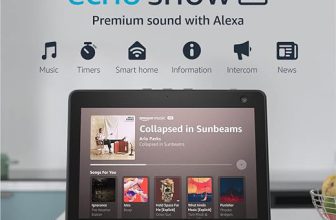
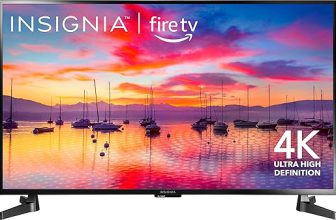
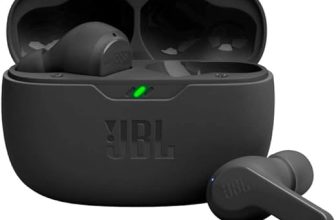
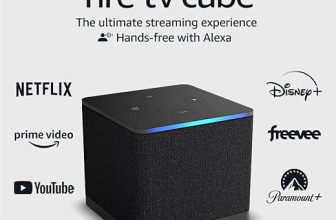
What about the debate over building vs. buying pre-built PCs? I feel like building is the way to go for budget options.
Could you provide more details on the power supply? What wattage do you recommend for a budget build?
Absolutely! For budget builds, a 500W PSU is generally sufficient, but make sure to get one from a reliable brand like Corsair or EVGA. What components are you planning to use?
Could you suggest some budget-friendly monitors that pair well with a gaming PC? Looking for something under $150.
For sure! Monitors like the AOC 24G2 or the ViewSonic XG2405 are solid choices in that price range. They offer great performance for gaming! Have you looked into any specific features you want?
I’m curious about your thoughts on the Intel Core i3 vs. Ryzen 3 for budget gaming. What do you think is better?
That’s a great discussion point! Both have their strengths, but many find Ryzen 3 offers better multi-threading performance, especially for gaming. Have you tried both?
Great article! I just built a PC with a Ryzen 5 5600X and an RTX 3060 for under $800. It runs everything smoothly! Anyone else have similar builds?
I’m looking to build my first gaming PC on a tight budget. Any recommendations for a good GPU under $300?
Thanks for sharing your build! The Ryzen 5 5600X is a solid choice, especially for gaming. How do you find the performance in more demanding games?
I used a GTX 1650 and paired it with a Ryzen 5 3400G for my budget setup. It runs Fortnite and Apex Legends like a champ! Highly recommend it if you’re on a tight budget!
Great tip! The GTX 1650 is a fantastic card for budget builds. How do you find it handles graphics settings in those games?